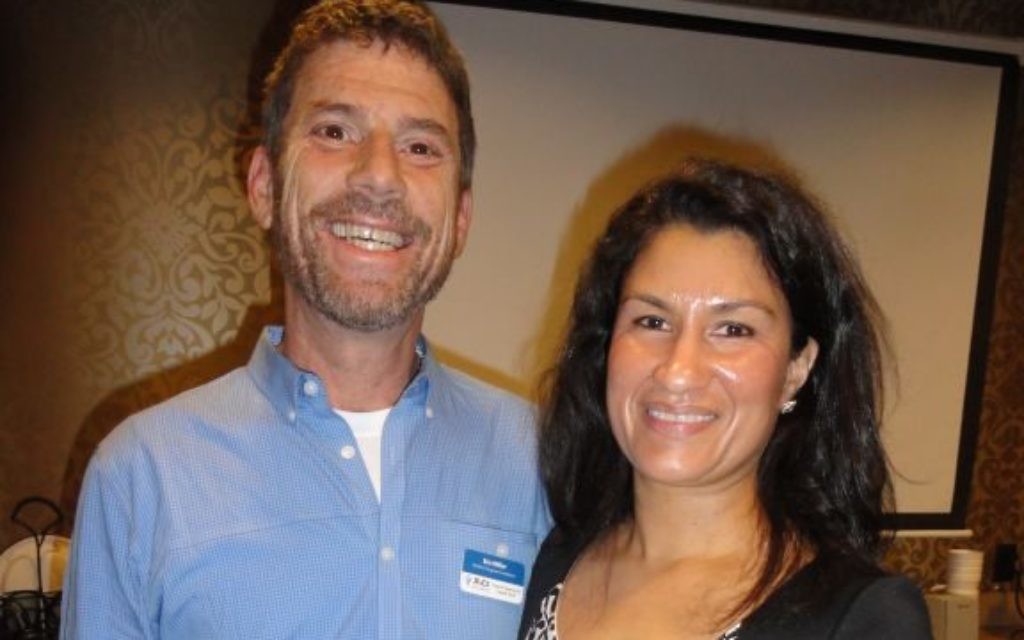HAMSA Helps Spot Signs of Addiction
Almost half of Atlanta’s Jewish population falls within the Heroin Triangle, an area where heroin-related deaths have gone up 4,000 percent.
Teenagers in Atlanta’s wealthy northern suburbs are dying from addictions at an increasing rate, according to Eric Miller, the program coordinator for Jewish Family & Career Services’ HAMSA (Helping Atlantans Manage Substance Abuse) program.
Miller spoke Sunday, March 26, at Congregation Gesher L’Torah about the Triangle, an area of Cobb, Fulton, DeKalb and Gwinnett counties north of Atlanta where an 11Alive investigation found a 4,000 percent jump in heroin-related deaths.
As much as half of Atlanta’s Jewish population falls within the Triangle (largely covered by the 6th Congressional District), and, as the AJT has reported, the Jewish community has not been immune to the ravages of opioid addiction.
Get The AJT Newsletter by email and never miss our top stories Free Sign Up
“It’s not the sort of profile of who you would think of as a drug user,” said Miller’s colleague Sally Anderson, a substance abuse clinician at JF&CS. “There is some controversy (about the 11Alive story) because heroin has always been a problem, but now that it’s affecting a suburban community, it’s suddenly big news.”
Two members of a family affected by addiction appeared at the discussion. Paige Nathan and her son Danny spoke openly about “the hell we’ve been through in the last year and a half.” Married to an alcoholic, Nathan said she was in denial about her son, now 16, even after spotting telltale signs of dangerous conduct.
“He didn’t go to school, suffered headaches. I gathered he was a little depressed. I really didn’t think it was alcohol. I didn’t put that together,” Nathan said. She described him as “a superbright, square-in-the-box kid. I always knew he would not take the traditional path but didn’t know what would transpire for him.”
At first, Nathan wasn’t sure whether some of Danny’s activities just constituted typical teenage behavior. “He seemed really popular, had friends over all the time, but then he would isolate himself.”
Danny explained some of what he went through. “Everything started for me in middle school. … I got fine grades. I was a smart kid, a social guy. I was a nice Jewish kid from Dunwoody, went to synagogue, learned my Torah. Everything was great. But I said, ‘I’m going to find something better, cooler.’ I was 12 or 13 when I first smoked pot and got to hang out with my older brother and his friends. I was in the middle of ‘Who am I, how do I feel?’ Depression was the main part of it. We all just don’t like ourselves.”
His parents eventually found a solution for him.
“It all came crashing down because it never works,” Danny said. “Alcohol, drugs, sex — any bingeing activity will never work. That’s what I failed to realize. I felt like I was doomed to die, so it was OK to be an alcoholic. I just didn’t care. It took my parents putting me in the Insight program to really see that maybe I was fine. I knew I was a nice guy and could make people laugh, but it didn’t matter because I was sad.”
Danny’s social life now revolves around the people with whom he is in recovery. “These aren’t hoodlums; these are your normal Marietta, Roswell, Alpharetta kids,” he said.
Miller offered advice to parents in a similar situation. “There are signs to look for: if they’ve changed the crowd they hang out with, if grades are dropping, the tension in the house has risen and there is conflict between parent and child or isolation. If all of a sudden they go silent, if they lose interest in something that had been very important to them. Those are signals, but there are no blaring lights.”
The hardest part for Danny was facing reality. “I wish someone had said to me, ‘I know you’re not OK; I know you need help,’ ” he said. “But I wouldn’t admit that to myself.”





comments